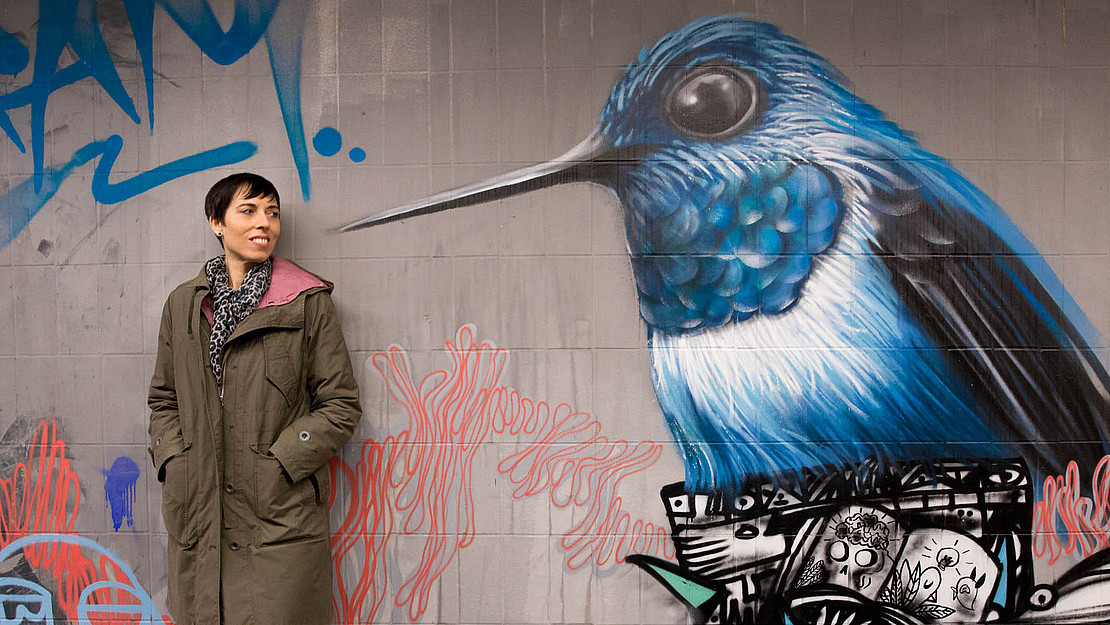This page contains automatically translated content.
Germany's first professorship on the history of animal-human relations at the University of Kassel
 Image: University of Kassel
Image: University of KasselHumans alone do not shape history, says Mieke Roscher: "Human history cannot be explained without animals." Animals and humans have evolved in a "cultural co-evolution." The historian refers, for example, to the phase of the Neolithic, in which man abandoned the nomadic life, became sedentary and increasingly based his existence on domestic animals, which, in addition to providing food, also served to cultivate the fields.
One problem with animal history, he says, is that unlike humans, animals leave no sources - except, for example, their bones, which are found in graves along with those of their owners. For Roscher, this deficit is not a new challenge. Gender history, another focus of her research, is also characterized by the fact that women have left hardly any sources, and the sources for underprivileged groups are similarly thin. It is therefore necessary to "re-read" these sources, to "brush them against the grain. From statistics or other economic information, for example, diverse information can be drawn about which animal species were kept, what value they had, what mythological significance was attributed to certain species.
Focus on animals in the Third Reich
Roscher directs her focus on New and Recent History; apart from colonial British India, she concentrates on the Third Reich. There has been a great deal of research on National Socialism, but the perspective on the integration of animals into the ideological concept of the Nazis provides many new insights. For example, the first German animal protection law, which was valid in the Federal Republic of Germany until 1972 and was copied many times around the world, dates from 1933. Anti-Semitic tendencies can clearly be seen in it, for example in the ban on slaughtering. According to Roscher's interpretation, mass animal husbandry was also conceptualized in this period, when the Nazis planned the Second World War and restructured the agricultural economy for it. In addition to humans, dogs were then also "mustered" for the war and "drafted" to the front.
Roscher (born 1973) studied in Göttingen, Bremen and in London and received her doctorate from the University of Bremen on the history of the British animal rights movement. She then worked as a post doc at the German Historical Institute in London, among other positions.
Her research topics are building blocks for a "Political Animal History of Modernity," a project in the Kassel LOEWE priority "Animal-Human Society," which the state of Hesse has been funding with about 3.6 million euros since last year. The junior professorship was established as part of this LOEWE focus. The state offensive for the development of scientific and economic excellence - LOEWE for short - is intended to strengthen the Hessian research landscape and promote collaborative projects. In addition to historians such as Mieke Roscher, agricultural scientists, Germanists, art historians, philosophers and theologians are also involved in the Kassel focus on "Animal-Human Society".
Image of Prof. Dr. Mieke Roscher (Photo: University of Kassel) at:
http://www.uni-kassel.de/uni/fileadmin/datas/uni/presse/anhaenge/2015/Roscher_Mieke_14.jpg
Contact:
Prof. Dr. Mieke Roscher
University of Kassel
Department of Human-Animal Studies
Phone: +49 561 804-7989
Mail: roscher@uni-kassel.de